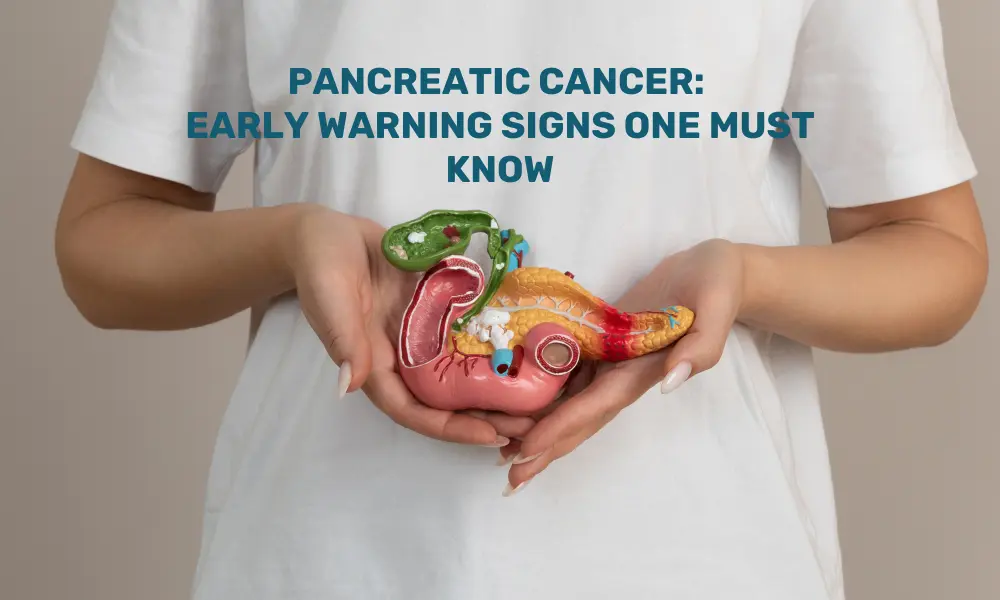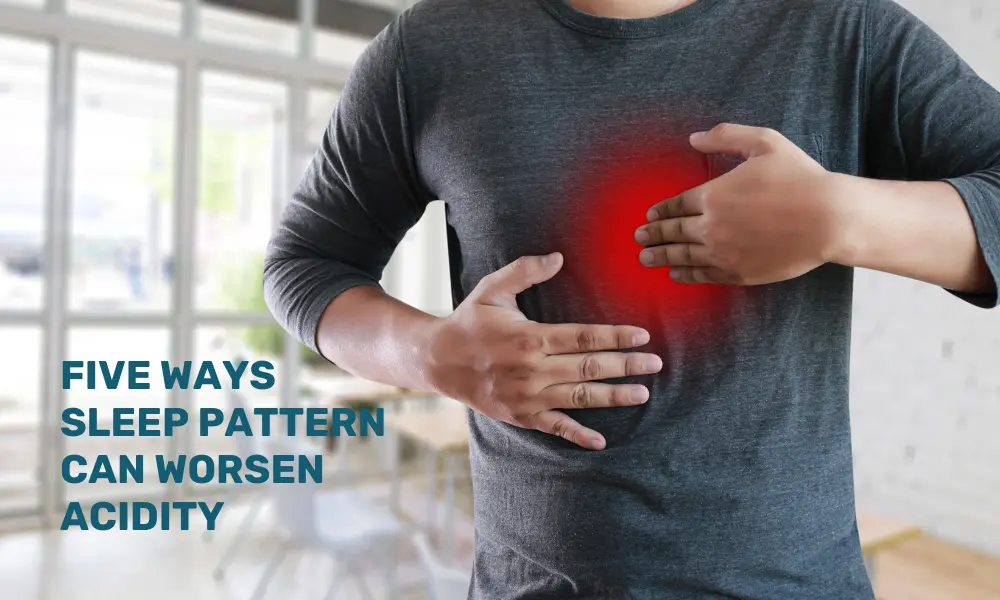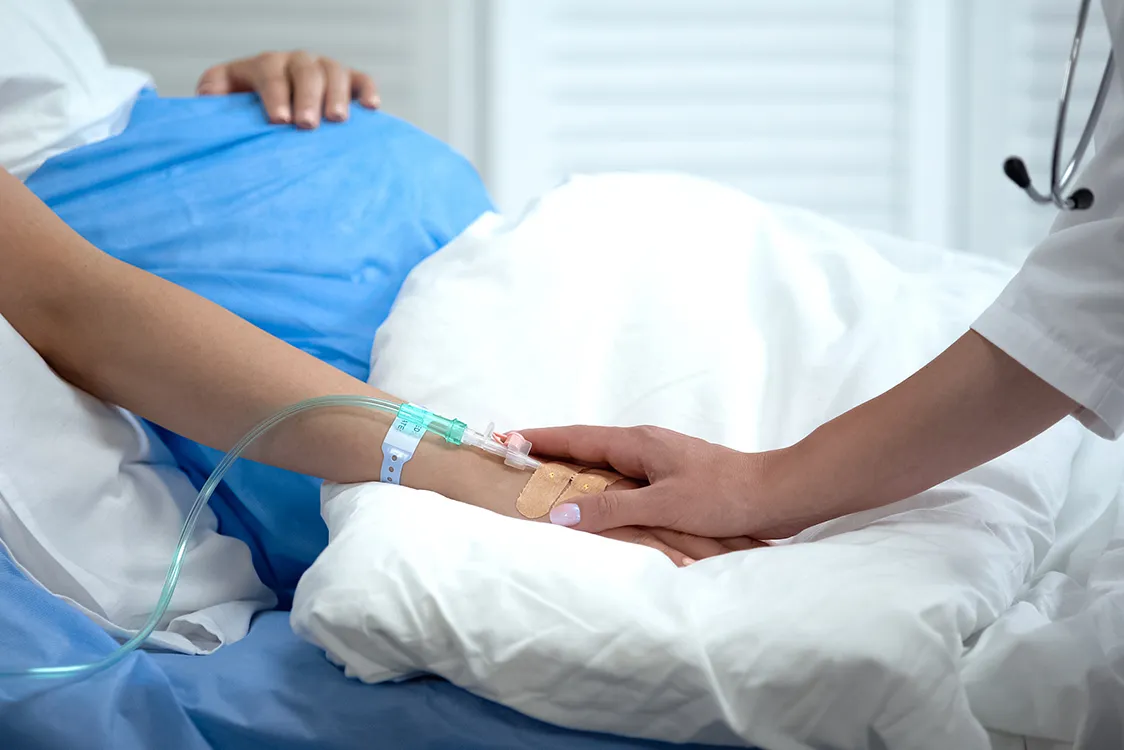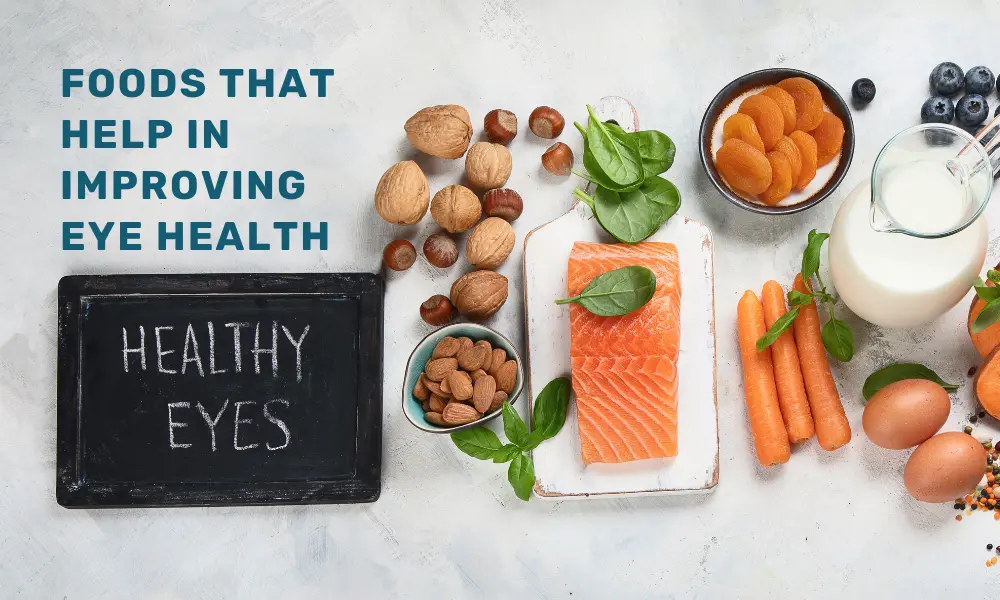The pancreas may be a low-key organ, quietly tucked away behind your stomach, but when it starts acting up, it doesn’t always send a clear memo. Pancreatic cancer, the ultimate master of disguise, often sneaks in without a grand entrance—until it has already made itself at home. But fear not!
Early Warning Signs of Pancreatic Cancer
Pancreatic cancer is tricky to catch early; however, the human body might drop some hints. From surprise weight loss to unexpected digestive drama, here are seven warning signs your pancreas might be trying to tell you something important.
-
Fatigue: Chronic tiredness or weakness, even after adequate rest, is common with pancreatic cancer. This can be caused by the body’s response to cancer or nutrient malabsorption.
-
Unexplained Weight Loss: Sudden, unexplained weight loss without deliberate changes in diet or exercise routine can be an early sign. This may happen because the cancer affects the body’s capacity to digest food and absorb nutrients.
-
New Onset of Diabetes: If you develop diabetes, particularly after the age of 50, it could be a sign of pancreatic cancer. The tumor can affect the pancreas’s ability to produce insulin, leading to diabetes.
-
Abdominal Pain or Discomfort: Pancreatic cancer can cause pain in the upper abdomen or back. The pain might feel dull or aching and may come and go, or worsen over time.
-
Jaundice: Jaundice occurs when a tumor blocks the bile duct, causing a buildup of bile in the liver. This leads to yellowing of the skin and eyes, dark urine, and light-colored stools.
-
Loss of Appetite or Feeling Full Quickly: A feeling of fullness after eating only a small amount or a complete loss of appetite could indicate pancreatic cancer. This may be due to the tumor pressing on the stomach or affecting digestive function.
-
Changes in Stool: Pancreatic cancer may lead to changes in bowel movements, such as pale, greasy, or floaty stools that are difficult to flush. This happens when the pancreas is unable to release enzymes needed for digestion.
Causes of Pancreatic Cancer
-
Smoking or drinking a lot of alcohol
-
Type 2 diabetes
-
Older age
-
Over weight
-
Family history of pancreatic cancer
-
Chronic inflammation of the pancreas, called pancreatitis
-
Family history of DNA changes that can increase cancer risk
Prevention of Pancreatic Cancer
While pancreatic cancer is difficult to prevent entirely, adopting specific lifestyle changes can help reduce the risk of developing pancreatic cancer. Here are some lifestyle changes one must consider:
1. Healthy Diet: A balanced diet rich in fruits, vegetables, fibre, and whole grains can help reduce the risk of various cancers, including pancreatic cancer. Focus on incorporating foods with antioxidants like berries, nuts, and leafy greens.
2. Manage Diabetes: Effective management of diabetes, including medication, diet, and exercise, can lower the risk of pancreatic cancer.
3. Quit Smoking: Smoking is one of the biggest risk factors for pancreatic cancer. Quitting smoking is one of the most impactful steps one can take to reduce the risk of pancreatic cancer.
4. Manage Workplace Exposure: Minimize exposure to harmful chemicals, especially in industries where carcinogens are prevalent.
5. Consider Genetic Counselling and Testing: If there is a family history of pancreatic cancer or related genetic conditions, genetic counselling and testing can help assess individual risk and guide preventative strategies.
6. Limit Alcohol Consumption: Excessive alcohol intake can lead to chronic pancreatitis, which is a risk factor for pancreatic cancer. Limiting alcohol consumption can help reduce this risk.
7. Maintain a Healthy Weight: Obesity increases the risk of pancreatic cancer. Achieving and maintaining a healthy weight through a balanced diet and regular exercise is crucial.
8. Regular Medical Check-ups: Regular check-ups can help detect early signs of pancreatic issues and other health conditions.
Pancreatic cancer may not be preventable, but adopting a healthy lifestyle may reduce the chances of developing this disease and help one have a healthy life.
Disclaimer: This article is meant for informational purposes only and must not be considered a substitute for professional advice.





